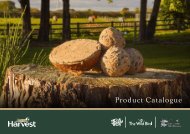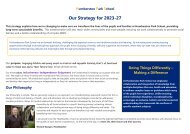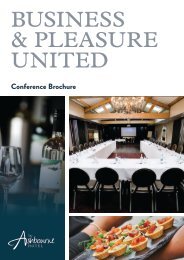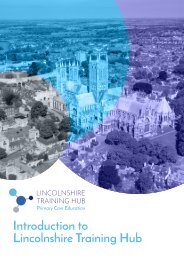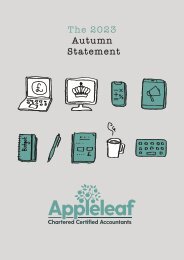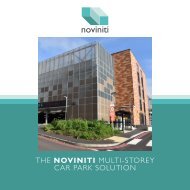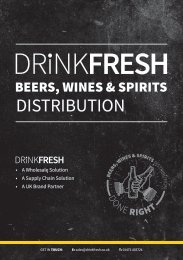The Sixth Form at Malton - Prospectus
You also want an ePaper? Increase the reach of your titles
YUMPU automatically turns print PDFs into web optimized ePapers that Google loves.
FOOD SCIENCE<br />
LEVEL 3 DIPLOMA<br />
An understanding of food science and nutrition is relevant to many industries and job roles. Care providers and nutritionists<br />
in hospitals use this knowledge, as do sports coaches and fitness instructors. Hotels and restaurants, food manufacturers and<br />
government agencies also use this understanding to develop menus, food products and policies th<strong>at</strong> support healthy e<strong>at</strong>ing<br />
initi<strong>at</strong>ives. Many employment opportunities within the field of food science and nutrition are available.<br />
<strong>The</strong> course involves both theory work and practical tasks. This is an Applied General qualific<strong>at</strong>ion, designed to offer exciting,<br />
interesting experiences th<strong>at</strong> focus on learning through applied learning, i.e. through the acquisition of knowledge and<br />
understanding in purposeful, work-rel<strong>at</strong>ed contexts, linked to the food production industry.<br />
Course Requirements: N/A<br />
Equipment:<br />
You will be expected to provide your own ingredients for<br />
practical lessons, plus you will need an apron and a range<br />
of storage containers to transport ingredients and finished<br />
dishes. iPads are used extensively for theory work. Financial<br />
assistance via the bursary scheme may be available.<br />
Skills:<br />
<strong>The</strong> course requires a large degree of self-motiv<strong>at</strong>ion and<br />
excellent organis<strong>at</strong>ional skills to prepare for each lesson in<br />
advance. Many of the tasks set involve problem solving to suit<br />
the nutritional needs of different people.<br />
Future Prospects:<br />
This qualific<strong>at</strong>ion can lead into future study for a range of<br />
careers including:<br />
Dietician, Hospitality, Sports Industry, Food Manufacturing,<br />
Food Technologist, Medical Research, Government Agencies,<br />
Food Science and Nutrition.<br />
Wh<strong>at</strong> Do Our Students Say:<br />
“I really enjoyed Food Science as it taught me how and why<br />
things happen when cooking foods. We learned a lot about<br />
presenting foods and how th<strong>at</strong> helps, this included time<br />
management. It has helped me realise how easy things are<br />
made from scr<strong>at</strong>ch, I still use some of the skills to this day.”<br />
Assessment:<br />
Units:<br />
1. Meeting Nutritional Needs of Specific Groups: Mand<strong>at</strong>ory<br />
Internal and External assessment (Year 12 written exam and<br />
coursework including practical)<br />
2. Ensuring Food is Safe to E<strong>at</strong>: Mand<strong>at</strong>ory External<br />
assessment (Year 13 exam report in lesson time)<br />
3. Experimenting to Solve Food Production Problems:<br />
Optional Internal assessment<br />
4. Current Issues in Food Science and Nutrition: Optional<br />
Internal assessment (Year 13 exam report in lesson time)<br />
Studying one of the two optional units will allow learners<br />
the opportunity to study subjects of particular interest<br />
or relevance to them, building on previous learning and<br />
experiences.<br />
<strong>The</strong> course will be assessed through practical work and an<br />
end of course examin<strong>at</strong>ion<br />
37






